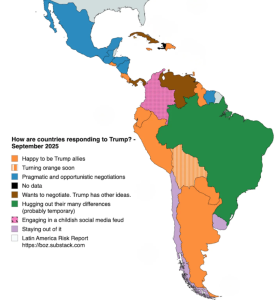The first time I read about “white privilege” in college was on a Blackboard assigned readings list. This was not a class I attended, but had access to in order to provide some help to the professor. As it turned out, I had read the original paper on this topic: Peggy McIntosh’s “White Privilege and Male Privilege: A Personal Account of Coming to See Correspondences Through Work in Women’s Studies” (1988).
While many critiques could be made—and have been made—to the author’s presuppositions, methods, and conclusions; and while the author admits that this piece was “based on my daily experience,” “is a partial record of my personal observations,” and “not a scholarly analysis,” there is one key aspect this article seeks to explore—the persistent complaint about the lack of “flesh”-colored bandages (and other products) that exactly match one’s skin tone. For example, listed as #46 on the list of advantages of “white privilege,” McIntosh wrote, “I can choose blemish cover or bandages in ‘flesh’ color and have them more or less match my skin.”
While it is not measurable, consistent experience demonstrates that pretty much any time “white privilege” is mentioned, the Band-Aid example is almost inevitable. A simple Google search for “white privilege band aid skin tone” will yield thousands of results. Now, many of these results will be criticisms of such a claim, as well as serious complaints about this “problem,” but this complaint has been a years-long staple of the “white privilege” discussion.
Complaints are revealing because they uncover what we want, what we think is normal, what we think we deserve, how we think the world works, and how we think the world ought to be. I suggest that the Band-Aid complaint and other similar complaints are revealing in several ways. Most generously, such complaints reveal unmet subjective wants in the market that can be met by entrepreneurs, free exchange, and the division of labor, therefore, it reveals an opportunity. More cynically—taking into account the default assumption of the justice of egalitarianism held by most—such complaints are supposed to engender guilt and cultural division, create a new caste of oppressors and oppressed, act as evidence of injustice, and open the opportunity for egalitarian interventions in order to obtain more political power.
I, Pencil, Skin-Tone Crayons, & Band-Aids
Leonard Read’s well-known essay—I, Pencil—demonstrates the complexity, spontaneous order, and “magic” of entrepreneurship, free markets, division of labor, and specialization. Even when it comes to a simple pencil, no one person has the knowledge or ability to create one. Read traced some of the component elements of a pencil back through the productive structure, noting all the specialized knowledge, labor, and exchanges that made it possible. Even though people are largely ignorant of these factors, that does not prevent them from enjoying the benefits.
Markets, trade, entrepreneurship, capitalism, and division of labor—usually little understood, yet deplored by anyone talking about “white privilege”—enable all sorts of very specific goods for very specific human wants. Inequality, disparities, differences—among individuals and locations—allow for division of labor which makes possible goods like skin-tone crayons and bandages and all sorts of other very specific consumer goods. (There are even Elmo, SpongeBob, and Barbie Band-Aids!). Most complainers about “white privilege”—seeing lack of such products as an injustice rather than an opportunity—did not enter the market to seize the opportunity and satisfy wants, entrepreneurs did. We see something of the wonder, beauty, and specificity of markets! Entrepreneurs and markets imperfectly solve problems, complainers do not.
By the way, when Johnson & Johnson announced a new line of Band-Aids to represent more skin tones, it was quickly announced that this wasn’t “enough.” Obviously, it could be pointed out that the Band-Aids and crayons are only the tip of the iceberg of the “white privilege” issue, and not even the most important. That said, we should note that this has been presented regularly as evidence of “white privilege.” We may also note that this is a persistent complaint, however, such a complaint would be utterly foreign to people living on less than $3 a day in other countries. In other words, the complaint itself reveals, not only key assumptions about how the world is and ought to be, but a level of privilege. A society has to be wealthy and developed enough to complain about the lack of skin-tone bandages and crayons.
Inequality Finders & Egalitarian Interventionists
Such grievance observations are meant to cause people to notice differences, assume the ideal of egalitarianism as just, feel inappropriate guilt and/or envy, then determine that “society” is systemically unjust because it brought about the outcome. Following that, guilty and/or envious people are open to demanding that “society” must be fundamentally changed. Cui bono? Who benefits?
The answer is 1) the political caste who receives the power and money to intervene in society via the state to achieve the unreachable and unjust goal of egalitarianism; 2) the beneficiary caste who receive the benefits of the state; and, 3) the new caste of “expert inequality finders” and compliance experts (both inside the state and out of it) who make a living pointing out all differences—real or imagined—in order to justify more state intervention. Though the political caste in the state is arguably the most “privileged”—being legally privileged—and the greatest cause of imposed inequality on the populace, there is not one suggestion for addressing “privilege” or “inequality” in society that does not conclude with more money and power to the state.
While championing “diversity” on the one hand (which assumes differences), egalitarian “equality” or “equity” are also promoted without realizing these are contradictory ideals. Once equality in every area is assumed to be a just norm and, conversely, any inequality or disparity is assumed to be the result of injustice, then the environment is ready for the state to take advantage of the situation. Castes are created by the state—the authoritative-rearranger caste—that are privileged and/or burdened by the state. Envy becomes institutionalized and, in the words of Bastiat, everyone tries to plunder everyone.
Such an environment not only strengthens the state—the political caste—but creates the emergence of a class of professional inequality finders. Ironically, without the developed division of labor and specialization, there would be no basis of wealth to support these “inequality finders” and “experts.” Every difference is seen as an injustice, an opportunity for intervention, and an opportunity for plunder. It also employs these new groups whose job is to notice the differences, stoke guilt and envy, invent new oppressed and oppressor “classes,” and threaten individuals and companies for failing to comply.
Rothbard describes how the egalitarian quest for the unattainable goal of “equality” leads to the rise of “a powerful ruling elite to wield the formidable weapons of coercion and even terror…to try to force everyone into an egalitarian mold.” Since people are not and cannot be equal (except equal in liberty), unless they are identical in every respect, then attempts to make them equal is anti-human. However, given the cultural acceptance of the ethical legitimacy of egalitarianism—even against reality and justice—new opportunities are opened, not only for the political caste but for a new “intellectual class” who provide justification for the state by noticing every difference between people. Rothbard again writes,
Every new discovery of an oppressed group [even a group without products to match skin tone] can bring the egalitarian more supporters in his drive to power, and also creates more “oppressors” to be made to feel guilty. All that is needed to find ever-new sources of oppressors and oppressed is data and computers, and, of course, researchers into the phenomena—the researchers themselves constituting happy members of the Procrustean elite class.
The charm of group egalitarianism for the intellectual-technocratic-therapeutic-bureaucratic class, then, is that it provides a nearly endless and accelerating supply of oppressed groups to coalesce around the egalitarians’ political efforts.
Ironically, it is the free market division of labor that provides an economic basis for both the political class to receive revenue and the possibility for a market for these inequality finders. Eventually, the political caste grows so bold that they believe they and their “services” provide the basis for the production and wealth the people enjoy (e.g., “You didn’t build that!”). Rothbard explains the connection between egalitarianism as a goal, noticing every inequality, expansion of political power, and new job opportunities for inequality finders, “And as the cause expands, of course, there is a multiplication of jobs and an acceleration of taxpayer funding flowing into the coffers of the Procrustean ruling elite, a not-accidental feature of the egalitarian drive.”
This might also help partially explain the elite obsession with statistics. Statistics not only provide political entities their only form of information (since they cannot use entrepreneurial economic calculation), but also because every disparity is seen as a problem that needs solving.
In the final analysis, there are basically two ways of viewing the lack of goods that reasonably match skin tone—one is productive and beneficial and the other is, at best, unproductive complaining or, at worst, lack of appreciation for the division of labor and desire to empower the state to coercively “equalize” all aspects of society. Entrepreneurs, free markets, and the division of labor can and do see opportunities to provide specific goods that others want (e.g., skin tone crayons, bandages, etc.). Egalitarian inequality finders, on the other hand, are typically not just complainers, but are willing to invite the political powers of the state to attempt to achieve the impossible and unjust goal of perfect “equality.”

























